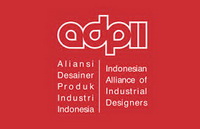Ecobrick: solusi cerdas dan kreatif untuk mengatasi sampah plastik
Abstract
Plastics are widely used in various needs of human life, starting from food wrapping material to the needs of automotive materials. Plastic is the most popular material and most widely used as a material for automotive component making, in addition to metal in the form of iron. The most important problem of plastics is the plastic waste that can not decompose naturally. It takes a very long time to clean up plastic waste from the face of the earth, especially since the use of plastic is almost unmanageable. Plastics also make the air temperature hotter day by day, due to its non-porous polymeric properties. At the moment, most products are produced without thinking of where they are going when consumed. Many products are also designed to fail within a certain period known as "planned obsolescence". This design philosophy is the cause behind overflowing landfills, plastic islands in the sea, and becoming a scourge such as packaging and products that clog the local ecosystem. Ecobrick is one of the creative efforts to manage plastic waste into useful objects, reducing pollution and toxins caused by plastic waste. Ecobrick is one of the creative endeavors for handling plastic waste. Its function is not to destroy plastic waste, but to extend the life of these plastics and process them into something useful, which can be used for the benefit of humans in general. Making ecobrick is still not so popular among the wider community. Most people still treat used plastics as household plastic waste, pollute the environment, rivers and pollute everyday life without self-awareness.
Keywords: plastic waste, contamination, ecobrick, creative effort
Full Text:
PDFReferences
Barnes, David K. A.; Galgani, Francois; Thompson, Richard C.; Barlaz, Morton (2009) Accumulation and Fragmantation of Plastic Debris in Global Environments. UK: The Royal Society, Biological Sciences Press
Dison, Gina (2014). Dep Ed Usec Graces eco-brick launching in Apayo. Northern Philippine Times. 11 Juli 2014 Fenichell, Stephen (1996) Plastic: The Making of a Synthetic Century. UK: Harper Business Ltd.
Halden, Rolf U. (2010) Plastics and Health Risks. The Annual Review of Public Health. 31 pp 179–94
Himawati, A. (2015) Meng-Ecobrick di Rumah Sendiri. Yogyakarta: Penerbit Kendi Aksara
Neeti, Rustagi, Pradhan, S. K. & Singh, Ritesh (2011). Public Health Impact of Plastic: An Overview. Journal of Occupational and Environmental Medicine. Sep-Dec 2011 Vol 15(3) pp 100–103 Weisman, Alan (2010) The World Without Us. Toronto: Harper Collins Canada
DOI: https://doi.org/10.24821/productum.v3i1.1735
Refbacks
p-ISSN 2477-7900 | e-ISSN 2579-7328

This work is licensed under a Creative Commons Attribution 4.0 International License.
Like & Follow Us










